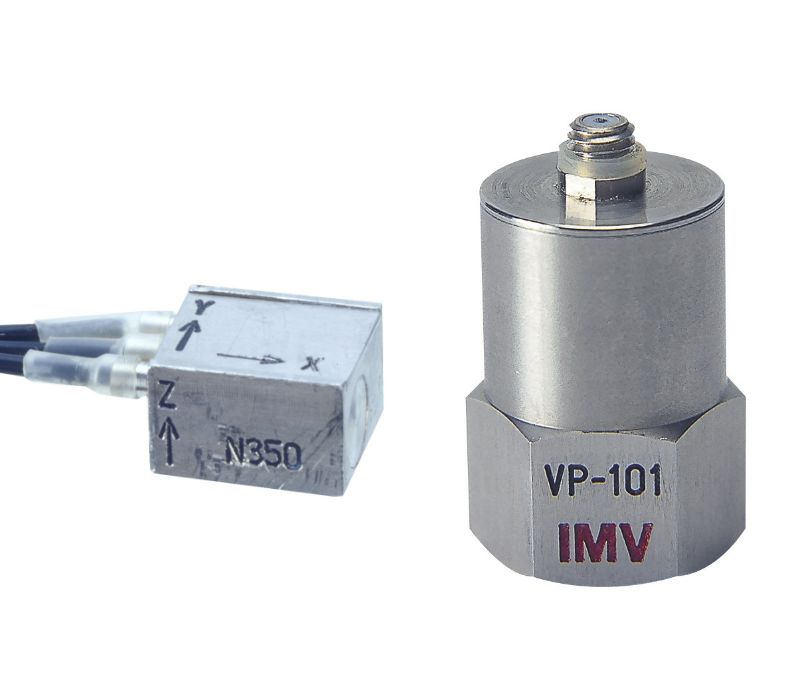
Vibration Sensors
Piezoelectric Sensor
The force applied to the piezoelectric element generates an electric charge proportional to the acceleration.
It can handle high vibration frequency and high acceleration.
Piezoelectric sensor (Charge type)
Compression type
-
Compression type has a piezoelectric element fastened by a screw between a piece of weight and the base. Measurement of pretty large shock is possible because of its advanced mechanical strength. The resonant frequency is high for its sensitivity. Therefore, the sensors of this type can be used not only for general applications but also for measurements of the high speed rotational machinery or detection of leakage from the pipe lines.
- Suitable for measurements of high frequency or high acceleration vibrations
- Stable works, advanced linearity
- Wide operating temperature range
-
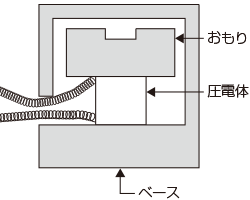
Shear type
-
Shear type is constructed so that each piezoelectric element has shear that is proportional to applied acceleration between the poles. It is useful for low frequency vibration measurement even in the environments of large temperature change because it is hard to be effected by the pyroelectricity. Furthermore, it is less sensitive to the strain in the base.
- Suitable for measurements of high frequency or high acceleration vibrations
- Tough against the temperature changeand disturbance caused by the strain in mounting section
- Covering small and light to high sensitivity
-
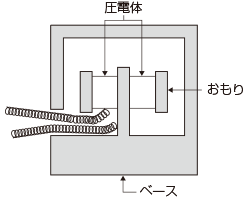
Bending type
-
Bending type has a construction to get the signal from the piezoelectric elements glued on a metal plate which is bent being applied an acceleration. This is light weight and has high acceleration sensitivity to be suitable to monitor earthquakes or small vibration of the testing models of dam, power station or small equipments, for example.
- Small size, light weight, high sensitivity
- Stable works, advanced linearity
-
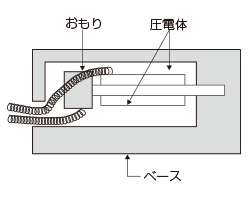
Piezoelectric sensor(Built-in pre-amplifier type)
Piezoelectric sensor(Built-in pre-amplifier type)
This is a piezoelectric sensor which has a built in charge amplifier to output a low output impedance voltage signal. Less expensive coaxial cable can be laid long distance with minimum lowering of sensitivity and influence of external noise. It is suitable for vibration monitoring. However, It is not recommendable for use in high temperature, in very high frequency range nor for meauament of very large accleraration.
Dual-line output charge amplifier
Dual-line output charge amplifier
-
Dual-line output charge amplifier is a charge/voltage converter which converts charge output of sensor to voltage with low impedance. It operates being supplied current by measurement equipment with a constant current source.The output signal is obtained superposed on the current supply.
Applications
- In the case of distance between a measurement instrument and a charge-type sensor.
*Adopting Commercially available coaxial cable enable cost reduction and high noise-resistance - Usable when measurement spot is high temperature and unable to use the sensor with built-in pre-amplifier.
- For use with charge type sensor and FFT analyzer equipped with a constant current supplier.
- In the case of distance between a measurement instrument and a charge-type sensor.
-
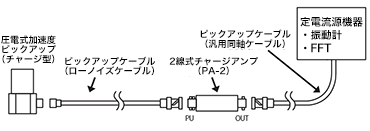
Features
Frequency response
-
Upper usable frequency limit depends on its own resonant frequency or rigidity of mounting. Lower useful frequency is limited by the time constant of the amplifier.
-
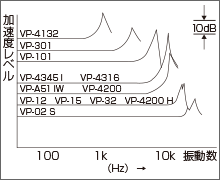
Temperature characteristics
-
Acceleration sensitivity of a piezoelectric element is effected by temperature. While such effect is dependent on material and structure, high temperature gives larger capacitance, higher charge sensitivity and smaller voltage sensitivity generally.
-
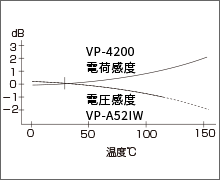
Cross axis sensitivity
-
Sensitivity to the acceleration applied along the axis of 90° to the sensitive axis is designed to be less than 5%.
-
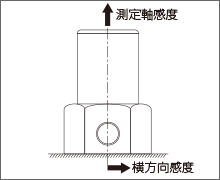
Fixing methods
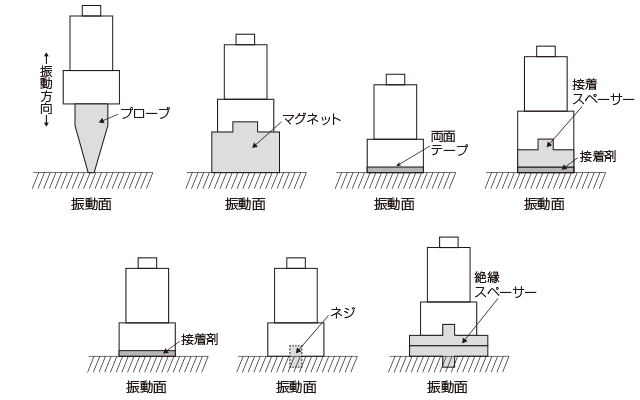
Product Lineup
Charge/Compression type
Charge/bending type
Built-in pre-amplifier/compression type product lineup
VP-100
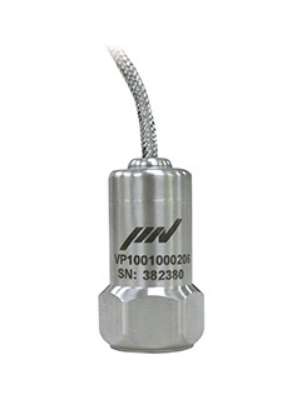
Application
Vibration precise analysis is available if connected to FFT analyzer.
*Requires DC 24 V
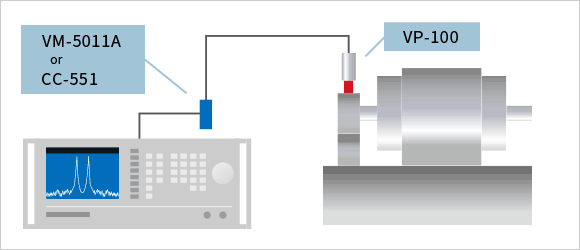

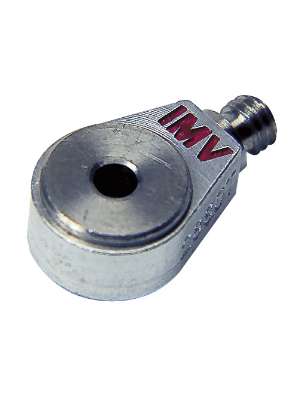 VP-02S
VP-02S
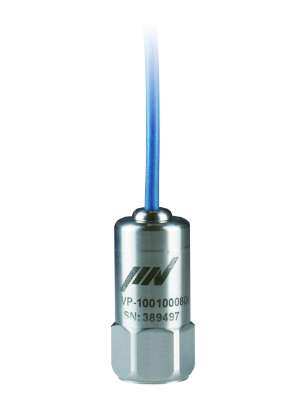 VP-100M
VP-100M
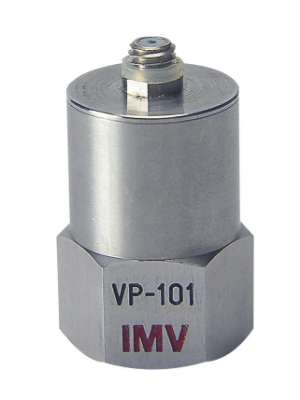 VP-101
VP-101
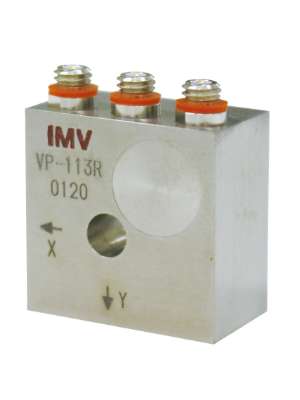 VP-113R
VP-113R
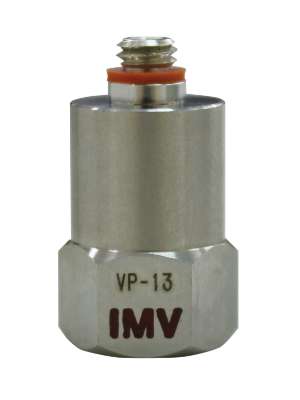 VP-13
VP-13
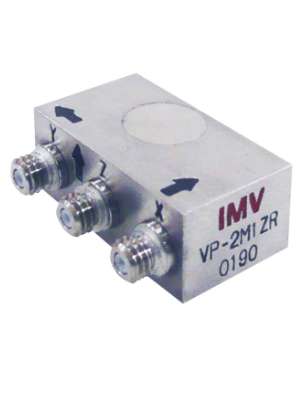 VP-2M1ZR
VP-2M1ZR
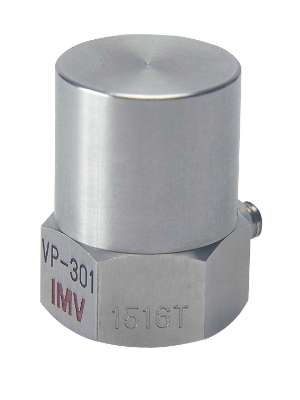 VP-301
VP-301
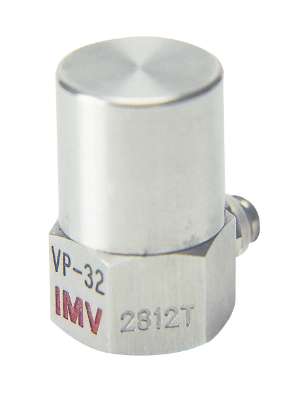 VP-32
VP-32
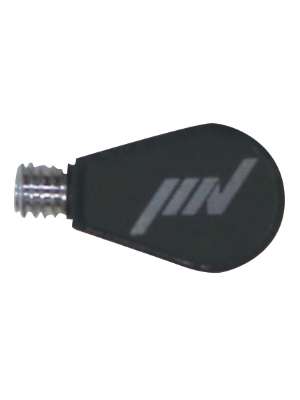 VP-4031IW
VP-4031IW
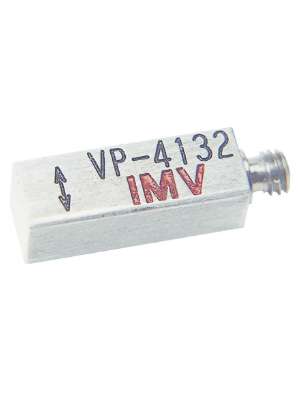 VP-4132
VP-4132
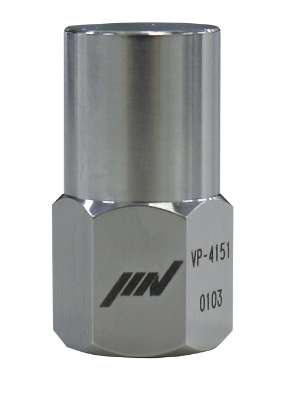 VP-4151
VP-4151
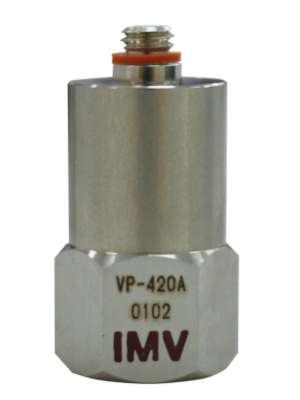 VP-420A
VP-420A
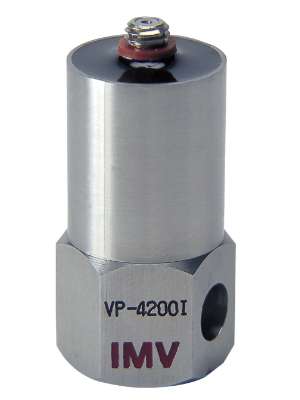 VP-4200I
VP-4200I
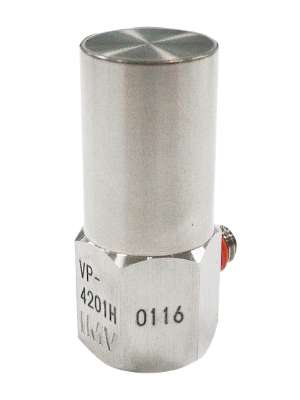 VP-4201H
VP-4201H
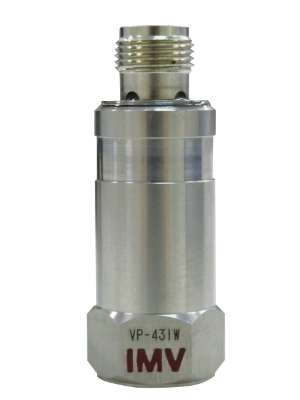 VP-43IW
VP-43IW
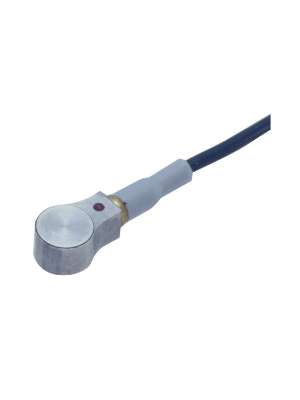 VP-4M2
VP-4M2
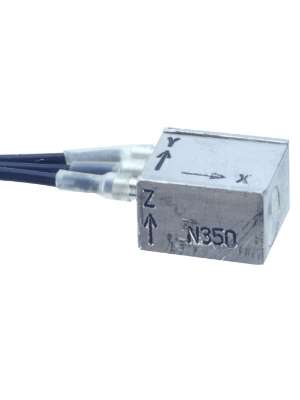 VP-4M2Z
VP-4M2Z
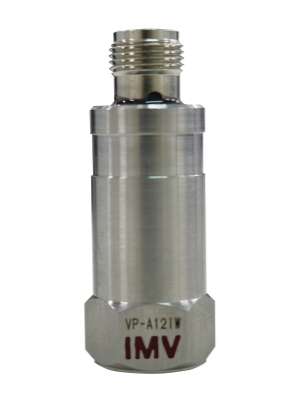 VP-A12IW
VP-A12IW
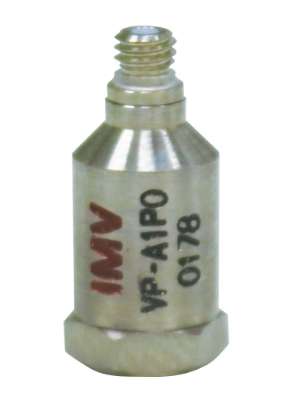 VP-A1P0
VP-A1P0
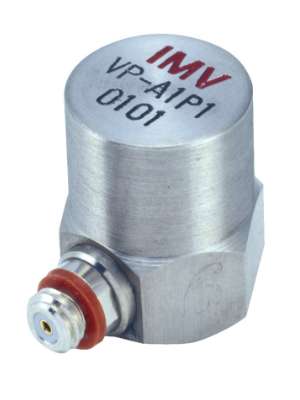 VP-A1P1
VP-A1P1
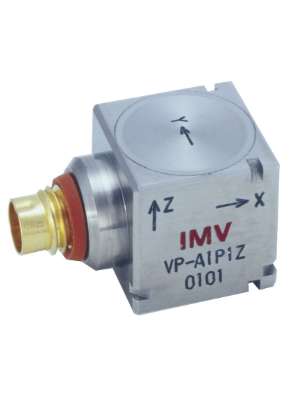 VP-A1P1Z
VP-A1P1Z
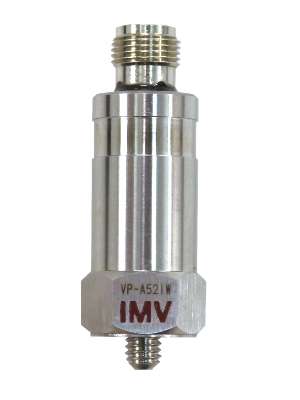 VP-A52IW
VP-A52IW
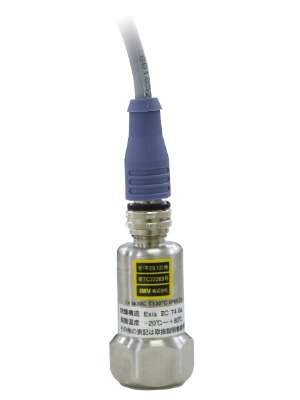 HS-100I
HS-100I
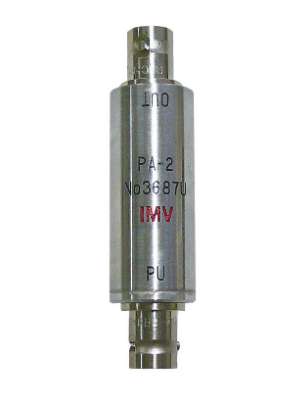 PA-2
PA-2
